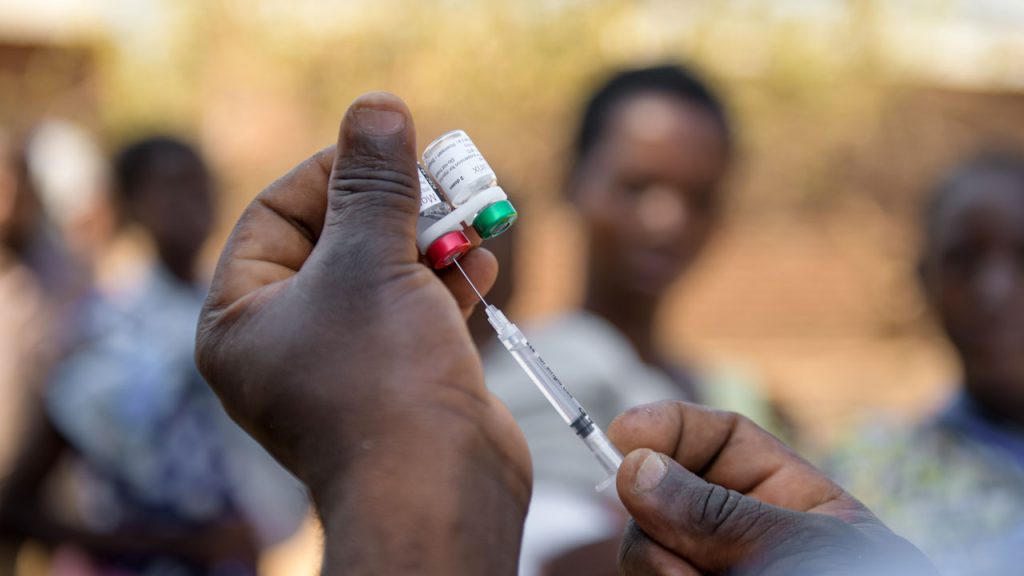Cameroon will be the first country to routinely give children a new malaria vaccine as the shots are rolled out in Africa.
The campaign due to start Monday was described by officials as a milestone in the decades-long effort to curb the mosquito-spread disease on the continent, which accounts for 95% of the world’s malaria deaths.
“The vaccination will save lives. It will provide major relief to families and the country’s health system,” said Aurelia Nguyen, chief program officer at the Gavi vaccines alliance, which is helping Cameroon secure the shots.
The Central Africa nation hopes to vaccinate about 250,000 children this year and next year. Gavi said it is working with 20 other African countries to help them get the vaccine and that those countries will hopefully immunize more than 6 million children through 2025.
In Africa, there are about 250 million cases of the parasitic disease each year, including 600,000 deaths, mostly in young children.
Cameroon will use the first of two recently approved malaria vaccines, known as Mosquirix. The World Health Organization endorsed the vaccine two years ago, acknowledging that that even though it is imperfect, its use would still dramatically reduce severe infections and hospitalizations.
The GlaxoSmithKline-produced shot is only about 30% effective, requires four doses and protection begins to fade after several months. The vaccine was tested in Africa and used in pilot programs in three countries.
GSK has said it can only produce about 15 million doses of Mosquirix a year and some experts believe a second malaria vaccine developed by Oxford University and approved by WHO in October might be a more practical solution. That vaccine is cheaper, requires three doses and India’s Serum Institute said they could make up to 200 million doses a year.
Gavi’s Nguyen said they hoped there might be enough of the Oxford vaccines available to begin immunizing people later this year.
Neither of the malaria vaccines stop transmission, so other tools like bed nets and insecticidal spraying will still be critical. The malaria parasite mostly spreads to people via infected mosquitoes and can cause symptoms including fever, headaches and chills.
